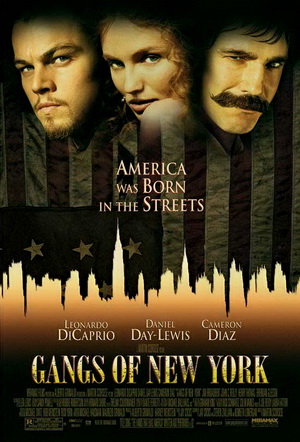Big George Foreman is a biopic about …. well, it’s right there in the title, isn’t it?
The film follows George Foreman (Khris Davis), from his poverty-stricken childhood in Houston’s infamous Fifth Ward to his current life as a beloved member of the American pop cultural pantheon. The film portrays Foreman as someone who learned how to fight early, punching out the children at his school who taunted him by calling him “George Poorman.” As a teenager, he drops out of high school and attempts to make a living as a mugger. Spending the night in a sewer and hiding from the police inspires George to try to change his life by joining the Job Corps. It’s while in Job Corps that he meets Doc Broadus (Forest Whitaker), a former professional boxer who takes George under his wing and teaches him how to work out his anger in the ring. Foreman marries, gets rich, cheats on his first wife, becomes the world champion, and is then humiliated when he loses his title to Muhammad Ali (played, in a not particularly convincing performance, by Sullivan Jones). Mired in depression and self-loathing, Foreman has a combination of a heart attack and a religious experience. He leaves behind boxing to become a preacher but, years later, an alcoholic accountant loses all of Foreman’s money and Big George is tempted to return to the ring at an age when most boxers have long since retired.
Some people know him as a fearsome boxer while others know him as the friendly face who sells grills but, regardless of what he may represent to the viewer, George Foreman’s real-life story is a compelling one and it’s pretty much impossible not to like him, even when he’s being played by an actor who is clearly not George Forman. (Personally, I’ll always remember George Foreman for his cameo on King of the Hill. “Novelty grill!? The fight’s on!”) Foreman is credited as being an executive producer on Big George Foreman and the film is evenly divided between the life of the young, decadent George who threw money around and cheated on his wife and the older, religious George who is committed to his family, his church, and his community center.
From a cinematic point of view, Younger, self-centered George is more fun to watch than Older, likable George. That’s because Younger George throws big parties, lives in a big mansion, and owns a fleet of luxury cars. Everyone around Younger George wears the height of 70s fashion and the soundtrack is full of 70s music. Younger George does stuff like put an exhibition match where he tries to knock out five fighters in one night night. Older George may be the better person and it’s good to see that he got his life together but it’s hard not to miss the decadence of the film’s first half once it skips forward in time and focuses on George Foreman as a surprisingly conventional suburban Dad.
Again, Foreman’s real-life story is a compelling one and George Foreman is an inspiring human being but the film itself is a rather conventional biopic, one that hits all of the expected moments without digging too much underneath the surface. Watching the film, one can respect the biopic’s obvious love for its subject and appreciate Khris Davis’s lead performance while also feeling that an interview with the real George Foreman would have been more compelling.

